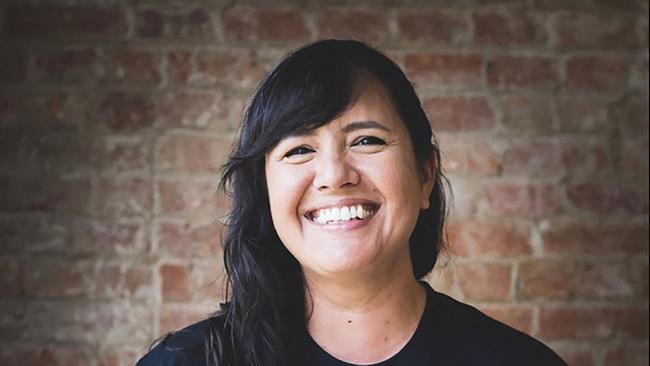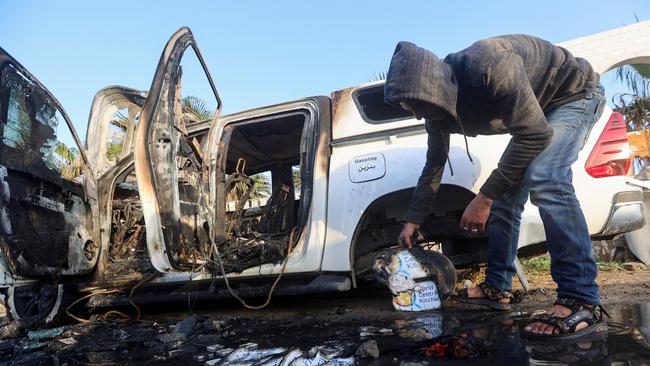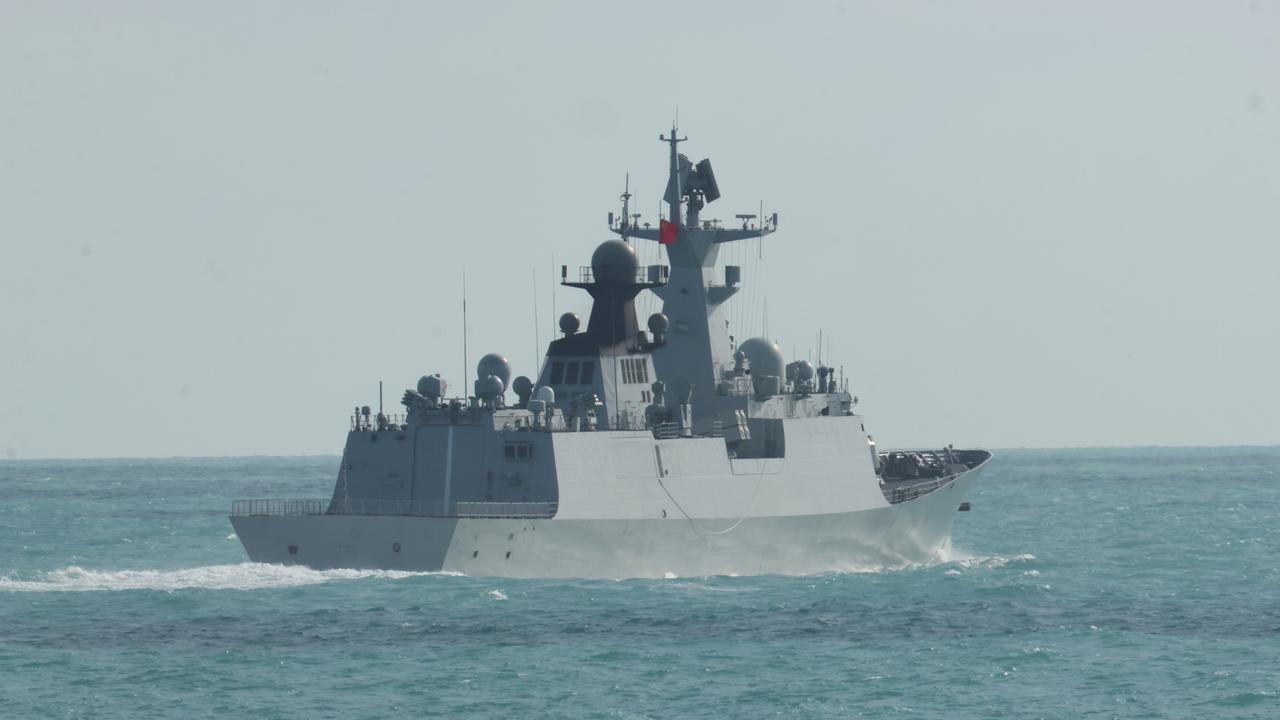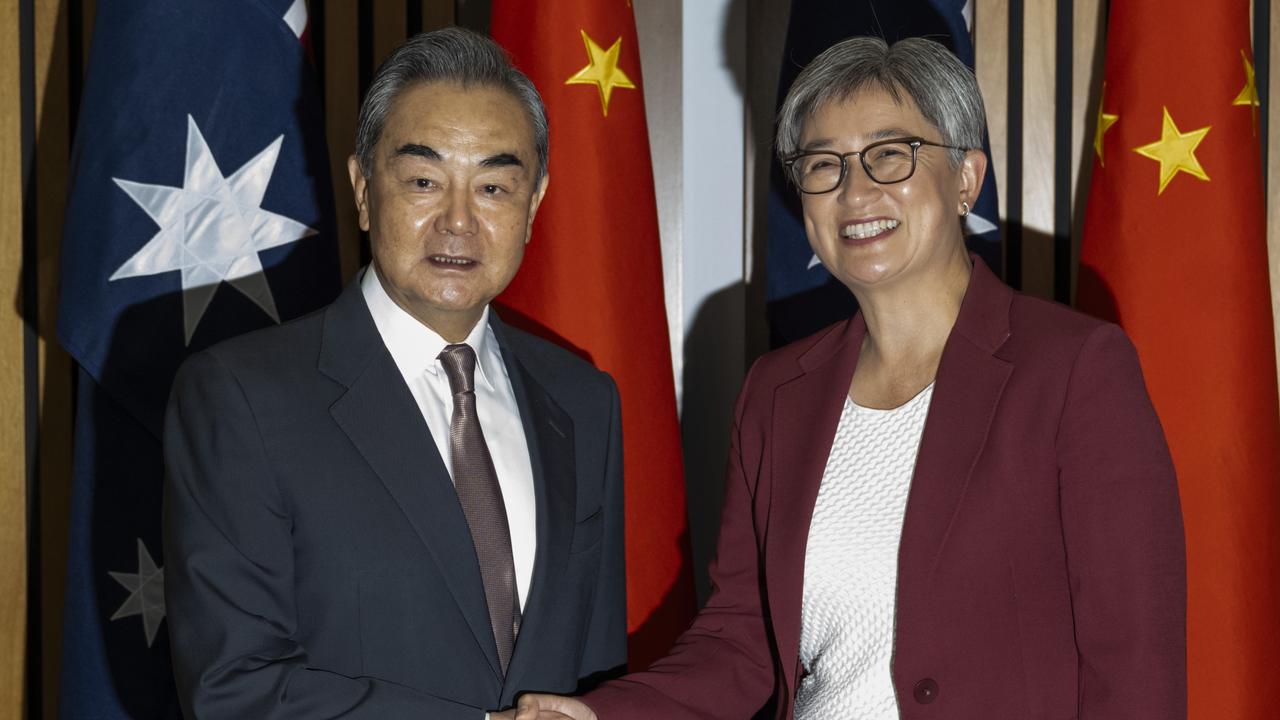Penny Wong urges UN: ‘Don’t let Zomi Frankcom’s death be in vain’
Penny Wong will challenge world leaders to support an Australian-led push for a UN new declaration to protect humanitarian workers in conflict zones.

Penny Wong will challenge world leaders in New York this week to support an Australian-led push for a new UN declaration to protect humanitarian workers in conflict zones.
The move follows the deaths of Australian aid worker Zomi Frankcom and six of her World Central Kitchen colleagues in an Israeli drone strike in Gaza.
The Foreign Minister will meet with aid organisations, national counterparts and UN Secretary-General Antonio Guterres, urging “practical and actionable steps” to keep aid workers safe in conflict zones.
An independent inquiry into the April 1 WCK tragedy found Israel’s military failed to share details of the agency’s movements in Gaza with key units, while the aid organisation’s use of armed security guards suggested “the presence of Hamas”.
Senator Wong said Australians felt deeply the loss of Ms Frankcom and her colleagues, and “we want to ensure that their tragic deaths are not in vain”.
“Now is the moment for the international community to rededicate itself to the protection of aid workers in conflict zones,” she said.
Senator Wong, who will address the UN Security Council and the UN General Assembly in coming days, said 2024 was on track to be the deadliest year on record for aid workers, with almost 300 killed in Gaza since the start of the war.
“Australia is deeply concerned by this trend. It signifies that the rules and norms that protect humanitarian personnel are at risk, with consequences for current and future conflicts,” she said.
Ms Frankcom’s family backed the push, saying the slain aid worker was “braver than most”, helping people in their most desperate moments.
“People like Zomi are rare and their bravery and selflessness should be not only celebrated but protected. They can’t be brave at any cost,” the family said in a statement.
“Zomi wasn’t naive enough to believe there weren’t risks, but to carry out the work she believed so passionately in, she needed to be able to trust that the deconfliction mechanisms in place would protect her. That they would be respected. And that the lives of humanitarian aid workers like her wouldn’t be carelessly disregarded.”

Officials expect negotiations on the proposed Declaration for the Protection of Humanitarian Personnel to take several months before it can be voted on in the General Assembly.
Aid agencies welcomed the initiative, saying the safety of humanitarian workers was essential to delivering aid.
“Humanitarian workers put their lives in danger and they deserve that we do everything we can to protect them,” UNICEF Australia chief executive Tony Stuart said.
Red Cross Australia’s humanitarian law director, Yvette Zegenhagen, said: “We hope that this initiative will drive forward global dialogue and action that enhances the safety of aid workers, with the hope of ensuring they can operate as safely as possible in some of the world’s most dangerous areas.”
Former defence chief Mark Binskin recommended in his report on the WCK tragedy that the government work with like-minded countries and the UN to improve co-ordination between aid agencies and the Israel Defence Forces.
He said the Israeli drone strike was “not knowingly or deliberately directed against the World Central Kitchen”, but information on the WCK convoy’s movements “had not been passed down” to relevant commanders or the drone operator.



